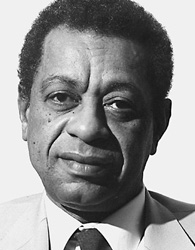News

In my advanced fiction class, we’ve been reading Margaret Atwood’s The Handmaid’s Tale, a novel my students seem to have fallen in love with, much to my delight. Here’s a small excerpt we discussed last week, when we talked about all the rules women (and men) are subjected to in the Republic of Gilead:
Women were not protected then.
I remember the rules, rules that were never spelled out but that every woman knew: Don’t open your door to a stranger, even if he says he is the police. Make him slide his ID under the doo. Don’t stop on the road to help a motorist pretending to be in trouble. Keep the locks on and keep going. If anyone whistles, don’t turn to look. Don’t go into a laundromat, by yourself, at night.
I think about laundromats. What I wore to them: shorts, jeans, jogging pants. What I put into them: my own clothes, my own soap, my own money, money I had earned myself. I think about having such control.
Now we walk the same street, in red pairs, and no man shouts obscenities at us, speaks to us, touches us. No one whistles.
There is more than one kind of freedom, said Aunt Lydia. Freedom to and freedom from. In the days of anarchy, it was freedom to. Now you are being given freedom from. Don’t underrate it.
(Photo credit: George Whiteside/House of Anansi)
 I was terribly saddened to hear that the great Sudanese novelist, short story writer and literary critic Tayeb Salih passed away in London yesterday. He was eighty years old. A few months ago, when I was preparing my introduction to the new edition of Season of Migration to the North, I had considered going to London to interview him. But then life intervened: I was busy and thought I might be able to meet him some other time. That time never came. He published only a handful of novels, but each had the beauty and complexity of dozens of literary works.
I was terribly saddened to hear that the great Sudanese novelist, short story writer and literary critic Tayeb Salih passed away in London yesterday. He was eighty years old. A few months ago, when I was preparing my introduction to the new edition of Season of Migration to the North, I had considered going to London to interview him. But then life intervened: I was busy and thought I might be able to meet him some other time. That time never came. He published only a handful of novels, but each had the beauty and complexity of dozens of literary works.
The BBC announced the news on Tuesday morning and included a short audio remembrance by Khaled Mubarak, a friend and colleague and Salih’s. There is quite a bit of coverage in the Arabic press, of course. (See, for instance, Al-Hayat, Ad-Dustour, or Elaph.) In Ash-Sharq Al-Awsat, Talha Jibril reveals that Salih’s body will be interred in Omdurman, in the Sudan, on Friday of this week.
Salih’s work is available in English thanks to translations by Denys Johnson-Davies: Season of Migration to the North, The Wedding of Zein, and Bandarshah. If you have never read him, I envy you your first experience.
In the Nation, Alexander Provan wonders whether Kafka’s work has nowadays been reduced to what he calls “a one-word slogan”: Kafkaesque.
What is the Kafkaesque? It is the scene described in Kafka’s story “A Report to an Academy,” in which an eloquent ape candidly recounts his arduous path toward civilization: “There is an excellent idiom: to fight one’s way through the thick of things; that is what I have done.” It is, Begley suggests, that familiar existential predicament so often played out by Kafka’s characters, who “struggle in a maze that sometimes seems to have been designed on purpose to thwart and defeat them. More often, the opposite appears to be true: there is no purpose; the maze simply exists.” It is the explosion of the international market for mortgage-backed securities and derivatives, in which value is not attached to the thing itself but to speculation on an invented product tangentially related to (but not really tied to) that thing. It is FEMA’s process for granting housing assistance after Hurricane Katrina: victims were routinely informed of their applications’ rejection by letters offering not actual explanations but “reason codes.” It is the Bush administration’s declaration that certain Guantánamo Bay detainees who had wasted away for years without trial were “no longer enemy combatants” and its simultaneous refusal to release them or clarify whether they had ever been such. It is, as Walter Benjamin wrote, “the form which things assume in oblivion.” “Kafkaesque,” in other words, is a phrase that has come to represent very much about modern life while signifying very little.
Provan reviews several recent books on Kafka, including one by Milan Kundera, who, interestingly enough, seems to blame Max Brod for starting the deification trend that resulted in vague terms like “Kafkaesque.”
At the L.A. Times book blog, Jacket Copy, Carolyn Kellogg reports that a long-neglected short story by John Cheever is being republished online this week, at Five Chapters. “Of Love: A Testimony” was originally released in 1943, but has not been anthologized or reprinted since. Here is its opening line:
He was as good a representative of his class as you could find, born in a staid suburb, educated in mediocre schools, firmly grounded in the cynicism of his class and education.
In its aim to immediately situate the protagonist within a specific class and education level, it reminds me a bit of the opening line to another Cheever story, “The Enormous Radio”:
Jim and Irene Wescott were the kind of people who seem to strike that satisfactory average of income, endeavor, and respectability that is reached by the statistical reports in college alumni bulletins.
At any rate, any Cheever story is a treat, so I look forward to reading this one. It will appear in five installments. Here is the first.
In March, the Kennedy Center in Washington, D.C., will be hosting the “Arabesques: Arts of the Arab World” festival. There will be musical, theatrical, and dance performances as well as film presentations and literary discussions. I’ve been invited to participate in two panels: “In Other Words: Expatriate Arab Literature” (along with Ahdaf Soueif, Anouar Benmalek and Abdourahman Waberi) and “Containing Multitudes: A Conversation with Arab American Writers” (along with Khaled Mattawa, Elmaz Abinader, Hayan Charara and Pauline Kaldas.) The events are free, but you will need to obtain tickets in advance, here and here.

 I was terribly saddened to hear that the great Sudanese novelist, short story writer and literary critic
I was terribly saddened to hear that the great Sudanese novelist, short story writer and literary critic